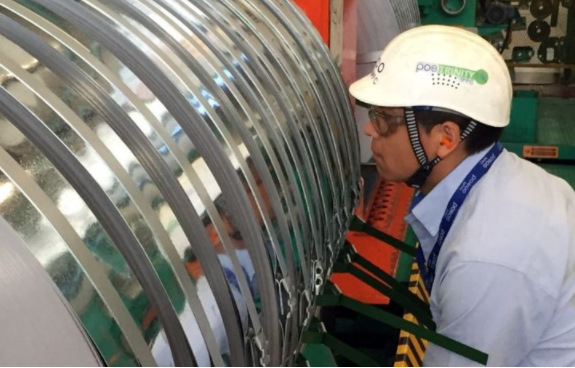Robots are one of the keys to automated production lines, but Tesla has recently spurred manufacturing to re-examine the highly automated development of production lines. Some experts have analyzed that one of the problems of the Tesla production bottleneck is that at this stage, robots have not been able to use artificial intelligence (AI) to strengthen their manufacturing capabilities, and the robot is enough to replace the human being in the production line. Even so, the market is still happy to see the application of AI in manufacturing. The Tesla Model 3 production process has encountered bottlenecks. CEO Elon Musk admits that “excessively relying on automation is a mistakeâ€, but automation has a long history and is the trend of today's manufacturing industry, which should bring better productivity to manufacturers. The market pointed out that one of the problems with Tesla's production of hell was that the realization of "highly automated" robots did not achieve the expected results. Experts believe that the robot has not yet developed the same level of adaptability as humans, and it still needs to constantly adapt the robot through humans. Secondly, the more complicated the task, the more technically needed behind it is more complicated. Musk also pointed out that in order to achieve communication between machines and equipment, the communication problems behind it are too complicated, and some of them cannot be used at all. Tesla eventually Uninstall the system if it is not possible. For the production bottleneck caused by high automation, the market believes that this is because the robot itself is not smart enough. When a process changes or the factory starts to produce new products, the manufacturer needs to reconfigure the equipment and find different solutions. However, automated adaptation is currently not achieved by artificial intelligence and robotics. Although the Tesla incident has caused the outside world to have doubts about the automated production line, experts believe that artificial intelligence still has considerable influence and benefits for manufacturers outside the robot. According to Gartner, a research institute, AI is already widely used in various industries around the world. Information security is a key target of all industries, accounting for 45% of all AI applications. AI's improved manufacturing and operational processes are the second-largest industry demand, accounting for 37%. In the case of the steel industry, on the one hand, it faces diversification of steel product types and specifications, and demands for higher quality and delivery time. On the other hand, it is limited by changes in the market environment, resulting in ups and downs in the steel market. Competition is fierce. As the largest steelmaking plant in Taiwan, Sinosteel has to make some changes in the fierce competition of the big environment. Zhang Rixin, director of the Information Systems Division of China Steel, said that steelmaking is no longer a problem. How to refine steel is the key point. . Nowadays, China Steel is moving towards a large number of customized services, and the core is to improve product yield. The steel industry needs to adjust production plans through real-time measurements. In order to reduce the rate of defective products, it is easy to add additional processing and time and cost. Assuming that the steel embryo is 30 to 40 cm thick, it is impossible for the naked eye to see if there is any flaw in the skin before the thinning. In this respect, the AI ​​can be effective because the information collected by the human senses will sometimes be Errors and ambiguities are generated, and AI can help improve information accuracy. Also in the AI ​​field is South Korea's Posco Steel (POSCO). Posco's smart factory platform "PosFrame" can visualize the data needed for steel mill operations, and this year Pohang Steel is working with GE (General Electric) to integrate the platform with GE's solution for the plant "asset performance management" (APM), which provides early warning of equipment in the plant to keep equipment state in optimal condition. Through this hybrid platform, Posco is expected to increase the efficiency and safety of its steel plants, which account for 60% of all steel sales. Not only will the company improve the manufacturing process, but the future AI will also be effective at important moments in the manufacturing site. Gartner believes that through special algorithms coupled with machine learning and increasingly sophisticated natural language processing techniques, manufacturers can use real-time data analysis, reasoning, forecasting and insights on the spot to provide advice and decisions to operators based on current manufacturing conditions. reference. For example, IBM's IoT Equipment Advisor uses a natural language question answering system. From the user's problems, it uses the accumulated data to judge, recommend the most reasonable method, and gives confidence index to help users in the face of repair, maintenance, A program or technology-related problem is assisted in making decisions. Shenzhen Kaixuanye Technology Co., Ltd. , https://www.iconlinekxys.com